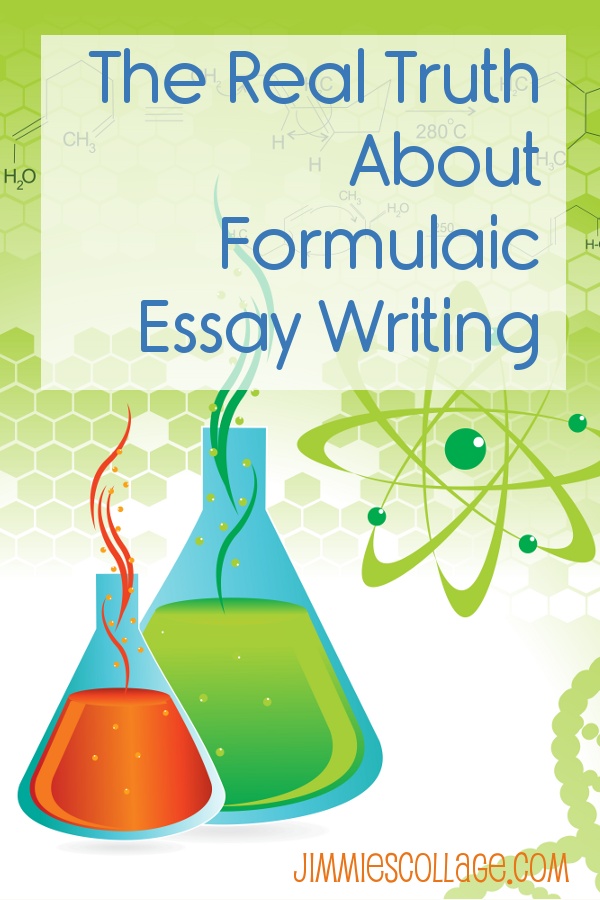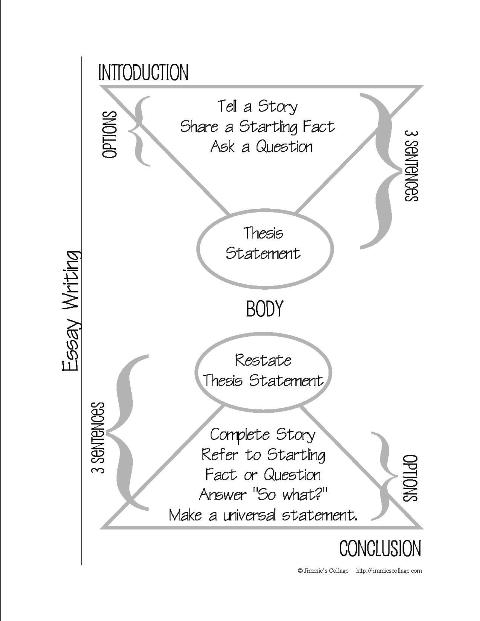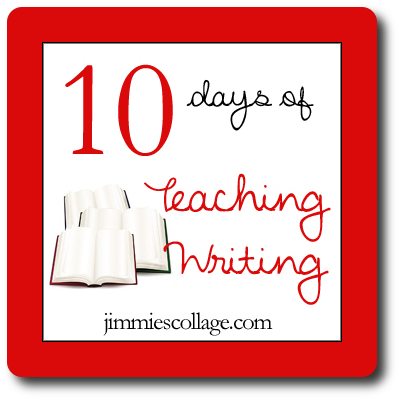
I admit that my approach to teaching essay writing is formulaic. I see nothing at all wrong with that.
A Writing Analogy
I learned to cook with a combination of recipes from cookbooks and my mother’s instruction in the principles of cooking. When I cook something new, I still refer to a cookbook rather than make it up. But after some experience with a new dish, I feel confident to experiment with ingredients and methods.
Writing is the same.
We can offer our children recipes of essay structures. They may seem predictable. But they work. And those writing successes bring our children great confidence. Alongside the recipes, we teach them the principles of good writing such as word choice, sentence patterns, and generating specific details.
Moving Past the Formulas — or Not
As young writers gain confidence, they can leave the confines of the formulas and venture out into more sophisticated styles of writing. And if they never mature past the formulas, at least they can write a decent essay. Some people never mature past grandma’s meatloaf recipe, and it is still a satisfying meal forty years later!
Easing the Cognitive Load
Here is another reason to offer students writing structures, hints, and formulas: Writing is hard work, cognitively speaking. It is a task that requires layers of multi-tasking thought— ideas, grammar, spelling, punctuation, transitions, order, logic, word choice, and sentence structure. It is almost impossible to be able to consider all of those facets at once.
Formulas make some facets foolproof so that they don’t require a lot of thought. Then that brain power can be focused on something else.
The hope is that those formulas will become ingrained to the degree that they are natural and then the writer can move on to concentrate on another element in his writing.
The Real Truth
The real truth is that professional writers have formulas, too. And although they take risks and break rules, they know how to revert back to those classic structures that work every single time.
Essay Formula Diagram
Speaking of formulas, here is an essay formula for the introduction paragraph and the conclusion paragraph. The triangles show the transition from general to specific and then specific back to general. This is part of the Essay Tune Up ebook.

It is a classic formula that always works. Think of it as the “little black dress” of composition.
The 10 Days Series is organized by iHomeschool Network, a collaboration of outstanding homeschool bloggers who connect with each other and with family-friendly companies in mutually beneficial projects.
Visit the other posts to be blessed with tips on how to handle bad days, cultivating curiosity, teaching with Legos, and much much more!

This is a great post. I agree that even if they never move past the formulaic writing, they will be able to write a respectable essay.
Even bigger: reading your words made me realize why my firstborn likes to write and why my middle daughter doesn’t. The firstborn is a born rule follower. The middle? Not so much. So she finds following a formula BORING. Yet she doesn’t relish the cognitive workload you describe. Where does this leave us? With a conversation that needs to be had – about how sometimes using a formula will actually make her life easier. Thank you for making that light bulb moment happen.
I love your “little black dress” handout. I have been teach this concept, but you put it together in a beautiful visual manner. Thanks.
I think formulas are great, especially for those who might not be naturally gifted in writing. Like you said, even professional writers have formulas. I think the key is to not make the formula the standard- to allow for evolution and creativity in the form. Great post!
This is an area of struggle. As a homeschool parent, I agree with this: “As young writers gain confidence, they can leave the confines of the formulas and venture out into more sophisticated styles of writing. And if they never mature past the formulas, at least they can write a decent essay.” As a writer, I scream in horror. 😉
But, I’ve come to terms with formulas and see their importance. Even writers’ handbooks like ‘Elements of Style’ by William Strunk offer ‘formulas’. It’s the formula that gives them confidence and self-esteem in their writing, but it’s up to us (the parents) to nurture creativity. Some may never write the next “Fault in Our Stars” but they’ll nail the ACT, college essay, or thank you letter to Grandma, simply because of the formula they learned. As always, good post. 🙂
Exactly, Brenda. It truly is a case of learning the rules so you can break the rules. Formulas can be great scaffolds for learners who struggle with writing.